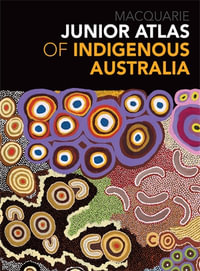In today’s academe, the fields of science and literature are considered unconnected, one relying on raw data and fact, the other focusing on fiction. During the period between the Renaissance and the Enlightenment, however, the two fields were not so distinct. Just as the natural philosophers of the era were discovering in and adopting from literature new strategies and techniques for their discourse, so too were poets and storytellers finding inspiration in natural philosophy, particularly in astronomy. A work that speaks to the history of science and literary studies, Fictions of the Cosmos explores the evolving relationship that ensued between fiction and astronomical authority. By examining writings of Kepler, Godwin, Hooke, Cyrano, Cavendish, Fontenelle, and others, Frédérique Aït-Touati shows that it was through the telling of stories—such as through accounts of celestial journeys—that the Copernican hypothesis, for example, found an ontological weight that its geometric models did not provide. Aït-Touati draws from both cosmological treatises and fictions of travel and knowledge, as well as personal correspondences, drawings, and instruments, to emphasize the multiple borrowings between scientific and literary discourses. This volume sheds new light on the practices of scientific invention, experimentation, and hypothesis formation by situating them according to their fictional or factual tendencies.
Industry Reviews
"Fictions of the Cosmos is one of the most original and engrossing books to appear in ages from within the whole field of literature and science. What Frederique Ait-Touati does is to put aside the merely analogical use of science by literary figures, and instead to examine the way natural philosophers and literary figures shared productive strategies about how to narrate the physical world. Drawing from the history of philosophy, classical literature, motifs, and rhetoric, she shows vividly how some of the key figures of the scientific revolution (among others, Kepler, Huygens, Hooke, and Margaret Cavendish) constructed their stories of nature. Fictions deepens our understanding of early modern science, showing how writing gave ontological weight and persuasive force to the universes evoked: micro-realities and cosmologies, instruments and voyages to other worlds. It is a remarkable book."--Peter Galison, Harvard University
"[D]eftly nuanced and finely controlled. . . . Fictions of the Cosmos is a model work for future interdisciplinary scholarship and a fascinating look into a period when scientific and literary imaginations formatively drew inspiration from the same sources as well as from each other."-- "MAKE"
"Fictions of the Cosmos makes an important contribution to the study of early modern science and literature by attending to the role of rhetoric in shaping the language and forms of scientific discourse as distinct from the 'literary' genres to which it was once closely related. Like Kepler's lunar voyager, the reader of her book is transported to another world--that of seventeenth-century cosmology--in order to see both that world and the modern one with fresh eyes."--Jayne Elizabeth Archer, Aberystwith University "British Society for Literature and Science"
"A book as sweeping as the epic journeys from earth to moon and beyond that it traces from antiquity to the scientific revolution. . . . Fictions of the Cosmos is . . . a subtle literary history of a forgotten genre and a risk-taking, ambitious exercise in the history of science, one that sets out not simply to describe a paradigm shift in astronomical thinking but to sketch a revolution in the status of 'fiction' itself."
--Henry S. Turner, Rutgers University "Configurations"
"Ait-Touati's arguments are adroit and ingenious. . . . Fictions of the Cosmos makes a persuasive case for the intertwining of science and literature in the seventeenth century."--Lawrence Lipking "New Republic"
"This welcome translation . . . makes available in English a smartly learned study of texts involving lunar journeying, works in Latin, French, and English by, among others, Kepler, Galileo, Fontenelle, Huygens, Hooke, and Cavendish. . . . The volume will prove tonic for literary and scientific historians. . . . Highly recommended."
--E. D. Hill, Mount Holyoke College "Choice"
























